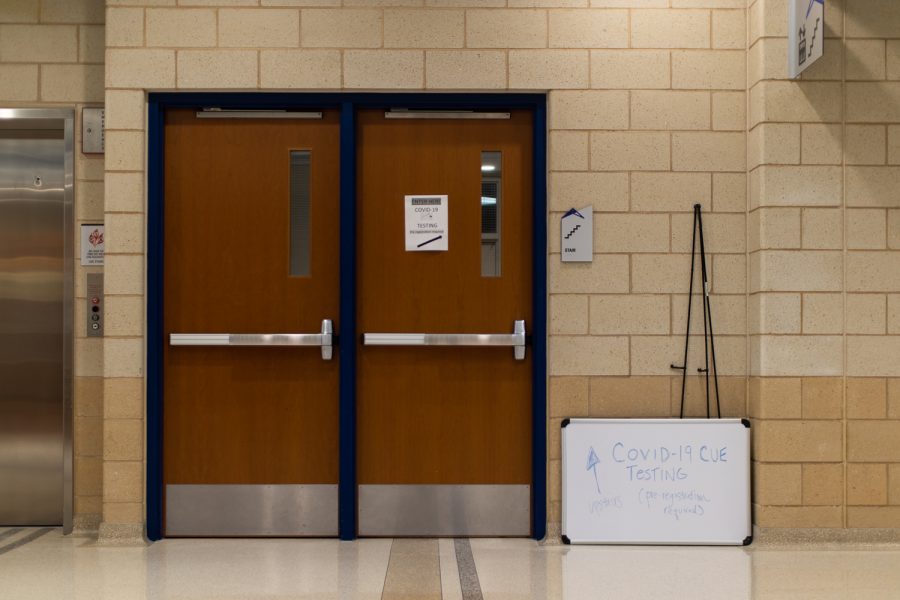Spring semester updates to COVID-19 policies
January 28, 2022
On Jan. 5, prior to students’ return to campus, Director of COVID Operations Paul Overvoorde and Medical Director of the Hamre Center Steph Walters announced in an email to the Macalester community that the college would begin the spring semester with several changes to their COVID-19 policies. Of the updates, two of the most significant changes included a temporary switch to remote classes for the first two days of the semester, as well as observing a quiet period until Feb. 1.
Two weeks later, the administration sent another update, notifying students that virtual instruction would be extended through Jan. 28 in response to the rise in the number of COVID-19 cases across both Minnesota and the rest of the U.S. In-person instruction will resume on Jan. 31, and the quiet period will end on Feb. 1.
In their Jan. 25 email to the student body, Walters and Overvoorde shared that since the beginning of January, there have been 58 reported positive cases of COVID-19 out of 1,473 completed tests, with 28 students isolating on-campus and 11 students isolating off-campus.
So far, student response to the college’s COVID-19 prevention efforts has been mixed, with some taking comfort in the college’s additional safety precautions and others still feeling concerned that not enough is being done.
“I’m pretty consistently impressed by Macalester COVID policies, although it’s a [bad] situation,” Halvor Morris ’24 said. “I think moving to distance [learning] was the right choice, even if it’s only for a week.”
Similarly, Louie Siegel ’24 overall felt positively about the college’s response.
“I think they are off to a pretty good start in terms of mitigating COVID cases with the quiet period, as well as with requiring people to get their booster shots,” Siegel said.
While many of the college’s preventative efforts have been positively received, some students expressed frustration at the lack of clarity from the college.
“RAs [Residential assistants] are upset because they’re significantly understaffed in the Residential Life department,” Doty 3 RA Bobbie Pennington ’24 said. “We keep getting calls saying, ‘my roommate tested positive, what do I do?’ And we’re literally like, ‘no idea.’ We tell them, ‘email contact tracing and maybe they’ll tell you what to do.’ We were not informed what to tell them at all.”
Korayma Lapham ’24, the RA for Turck 1, expressed their concerns surrounding the college’s lack of a mask enforcement policy, including inside residence halls.
“RAs technically cannot get people in trouble for not wearing their masks,” Lapham said. “That is not actually a requirement of the college, which I learned recently during my term training.”
Looking ahead, in addition to the college’s current COVID-19 prevention initiatives, students ask for clearer communication from the administration and additional support this semester.
“I think that the largest flaw with our COVID response is the irregularity of communication,” Morris said. “Sometimes guidelines and rules are very clear, for example, with the testing guidelines. Other guidelines are not as concretely defined, such as what to do during the quiet period.”
Additionally, Siegel mentioned that he wished that the college would further prioritize students’ mental health, in addition to disease prevention, during the pandemic.
“I think their encouragement of students to prioritize mental health over their academics is still lacking in terms of them actually taking actions to better students’ mental health during a global pandemic,” Siegel said. “I think that could still be improved.”
At the beginning of the semester, a student-written open letter to senior leadership received widespread support from the student body, incorporating some aspects of the college’s initial COVID-19 response in its request for additional support for students.
Moving forward, the college intends to collect staff and faculty feedback as it continues to adjust its COVID-19 policies and plans for the semester.
Associate Dean for Campus Life Andrew Wells wrote in an email to The Mac Weekly that faculty hold committee meetings and monthly governance meetings to share input to be included in the college’s plans.
“Staff input comes up from all divisions… through the line officers who represent them in senior staff, as well as through the Staff Advisory Council, which is the elected body of staff representatives,” Wells wrote.
In the meantime, the college plans to keep the COVID-19 response website up to date and address questions and concerns sent to [email protected].
Students are expected to continue upholding the Mac Stays Safer 2.0 Community Commitment and to access available resources if they need to get tested for COVID-19.














